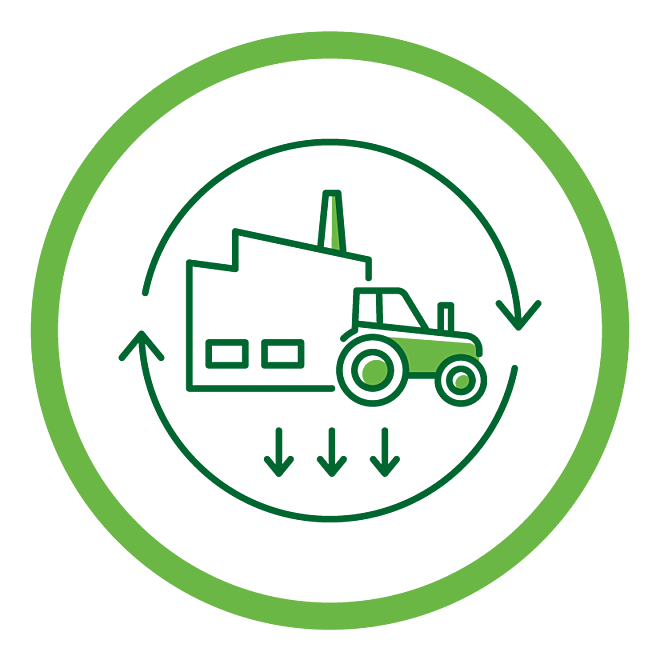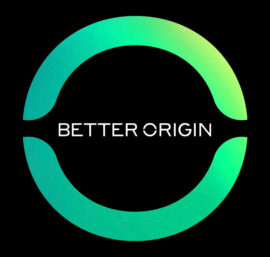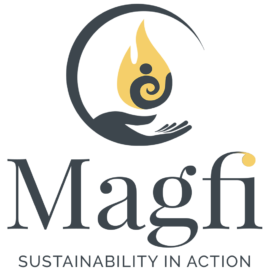Net Zero Food System
We will enable the transition to a net zero food system, measuring and quantifying the change through reduced CO2 equivalent emissions.


The food system is responsible for almost a third of greenhouse gas emissions, with connected challenges such as food waste, resource depletion and energy consumption.
To reach net zero and mitigate the impacts of the climate crisis, we must scale a systems approach to change that enables the transition to sustainable and regenerative agriculture practices, creates new markets and opportunities for food waste and loss reduction, and empowers all stakeholders to play an active role in the circular food economy.
EIT Food's Net Zero Food System mission framework is based on three targets where the EIT Food community can have the most impact, and in the areas of greatest need. These are:
- Establishing regenerative agriculture as a commercially viable option in key value chain
- Reducing food loss and waste
- Growing the circular food economy through packaging and labelling.
This is reflected in our community building and advocacy activities and underpins the design of our funding and partnership opportunities.
Deep dive into our research on creating a net zero food system, and the actions we recommend
Real progress towards a net zero food system requires radical food systems transformation so that food produced in a sustainable, equitable and affordable way is available to all people.
To achieve this, key enablers of change include the integration of data into all value chain measurement, reporting and verification (MRV) processes, the overcoming of barriers to behaviour change in the farming community, and a change in consumer behaviour.
Key findings
Agriculture and primary production
Beef production, rice production and feed coming from deforested areas have the most negative effect on the emissions of greenhouse has (GHG).
Some innovation is required here, but enabling farmers to lead the transition is the key, including ensuring their understanding and overcoming barriers to adoption. This includes the critical need for standardised MRV and definitions for Net Zero and Regenerative Agriculture.
Food loss and food waste
Measuring and evidencing progress for food loss and food waste reduction is strongly required. For example, edible and inedible parts of food need to be disaggregated to help inform decision making. Furthermore, there is a need for a data repository on food loss and waste measurement as well as greater levels of consumer education e.g. best-before dates.
Food and beverage packaging
This is high on agendas for retailers, manufactures and brand owners. Connecting startups with industry here is important. There is a significant opportunity and need around developing a gold-standard for eco-labelling as well as a focus on education for consumers in general.
Protein diversification
There is a critical need to accelerate innovation to market in this field and enable appropriate policy frameworks to incentivise the transition to diversified protein sources. There is also a strong need to increase consumer awareness to facilitate behaviour change.
Opportunities
Agriculture and primary production
Regenerative Agriculture is a significant opportunity yet currently no commonly accepted definition nor impact indicator exists.
Incorporating low emission, carbon sequestration and sustainable farming practices to regenerate soils, boost productivity, increase yields, reduce emissions and capture carbon has the potential to reduce carbon by 10.5 Gt CO2 every year.
Supporting tech and capabilities
Methane capture, feed additives, precision farming, plant and soil microbiome, new breeds, gene editing, animal health and husbandry, solutions to fertilizer and anaerobic digestors.
Pricing of carbon will be a key component in supporting farmers to fund the negative emission technology needed to achieve net zero.
Food loss and food waste
Focussing on primary production and consumers, as well as the valorisation of side streams.
Supporting tech and capabilities
- End-of-use and waste: Recovery, e.g. recycling
- Landfills e.g. anaerobic digestion of food waste
- Game based apps
Food packaging
Transforming the packaging system from a linear model towards a circular system where value can be captured in the system and out of the environment
Supporting tech and capabilities
- Transitioning away from fossil fuel monomers
- Sustainable packaging by design
- Substrate additives and materials, active and intelligent packaging, smart labels and edible coatings
Protein diversification
In production and consumption. As an opportunity to complement and support the agriculture sector and wild fisheries to feed a growing population.
Supporting tech and capabilities
Plant diversification, aquaculture and algae biotechnology and synthetic biology.
Enablers for change
- Engagement with policymakers
- Forging collaboration and partnerships between government, academia, NGOS, industry (from big brands down to small farmers)
- Knowledge and skills development among farming communities and society, particularly young people
- Development of resources and infrastructure as well as technological innovation to scale up solutions and drive down costs
- Scouting innovations with underpinning IP, establishing regulatory experts / expertise to support agrifood start-ups and providing access for start-ups to technical experts, IP support and advice, pilot facilities and farms and support them in accelerating from lab to commercial scale
- Experimentation in new production methods, products, services, and business models, particularly in use of food waste will be important
- Public Engagement, particularly with young people to inform on net-zero and raise awareness and increase consumer acceptance of innovative new net-zero solutions.
Have an idea that will improve the food system?
Want to get involved with our community? We regularly bring people together to help us all reach for our shared goals – and we’ve launched a competitive, open Impact Funding Framework to promote and fund ambitious, long-term collaboration that will lead to food systems change to benefit us all.

Net Zero Food System insight report
EIT Food has published a Net Zero Food System Insight report, co-designed and authored by a community of experts and organisations committed to driving change in this Mission area.
This report describes the agrifood systems change we all need to see to improve the environmental of our food system. The transformation needed is more action than any one organisation is capable of by itself.
Download the report
How EIT Food is creating a Net Zero Food System
Latest related news
Looking for more content related to Net Zero Food System?
Related startups in our network

Better Origin

ENERGY PULSE SYSTEMS

ELEA

BeYou

AI TALENTUM

ANALYTICS ENGINES



EIT Food Digital Marketplace for Side Streams


Energy-to-Feed (E2F)

Can I trust the food industry to provide healthy and sustainable food?
Related partners

Agri-EPI Centre

Magfi

Scottish Association for Marine Science (SAMS)

Milcoop

Aarhus University



EIT Food Digital Marketplace for Side Streams


Energy-to-Feed (E2F)

Can I trust the food industry to provide healthy and sustainable food?















